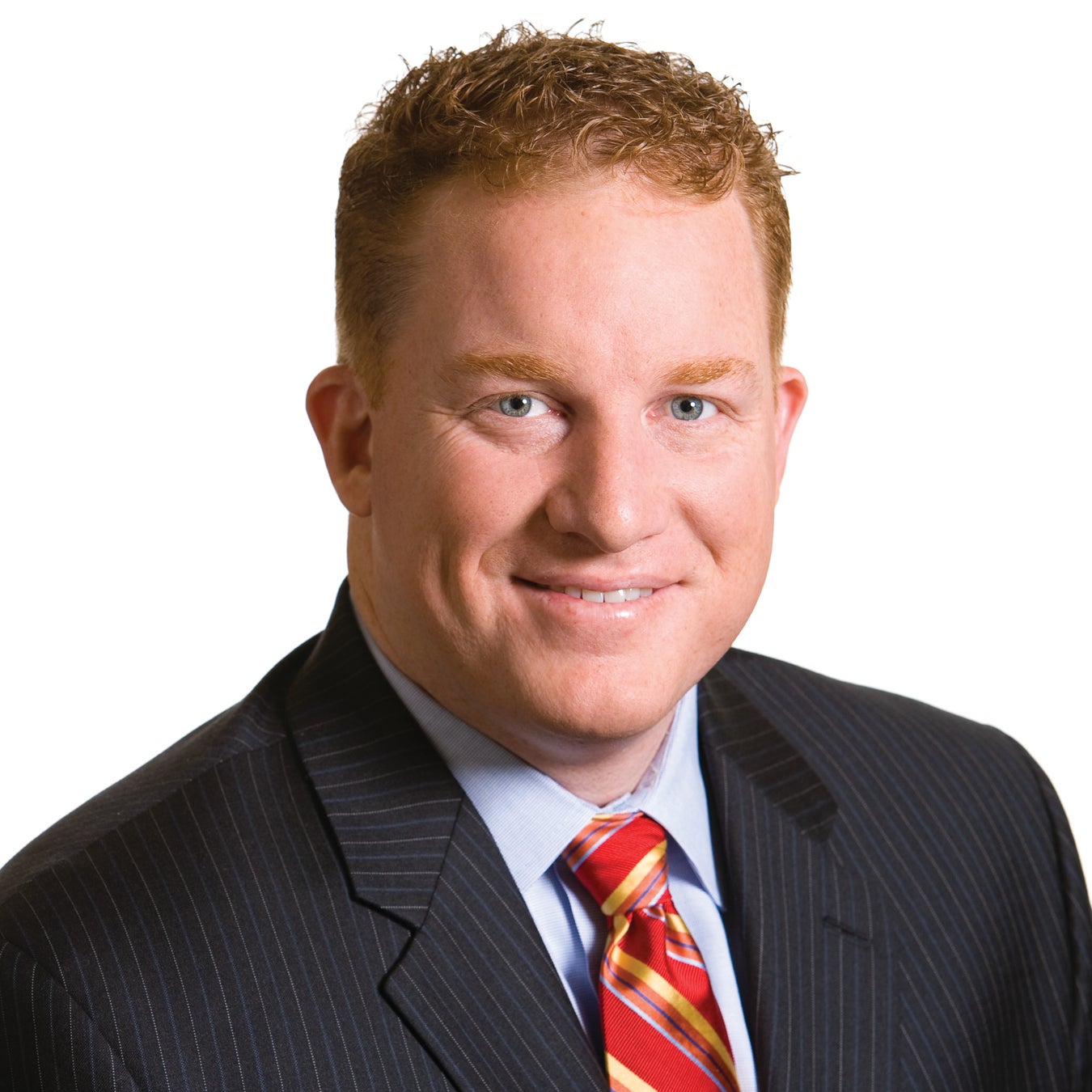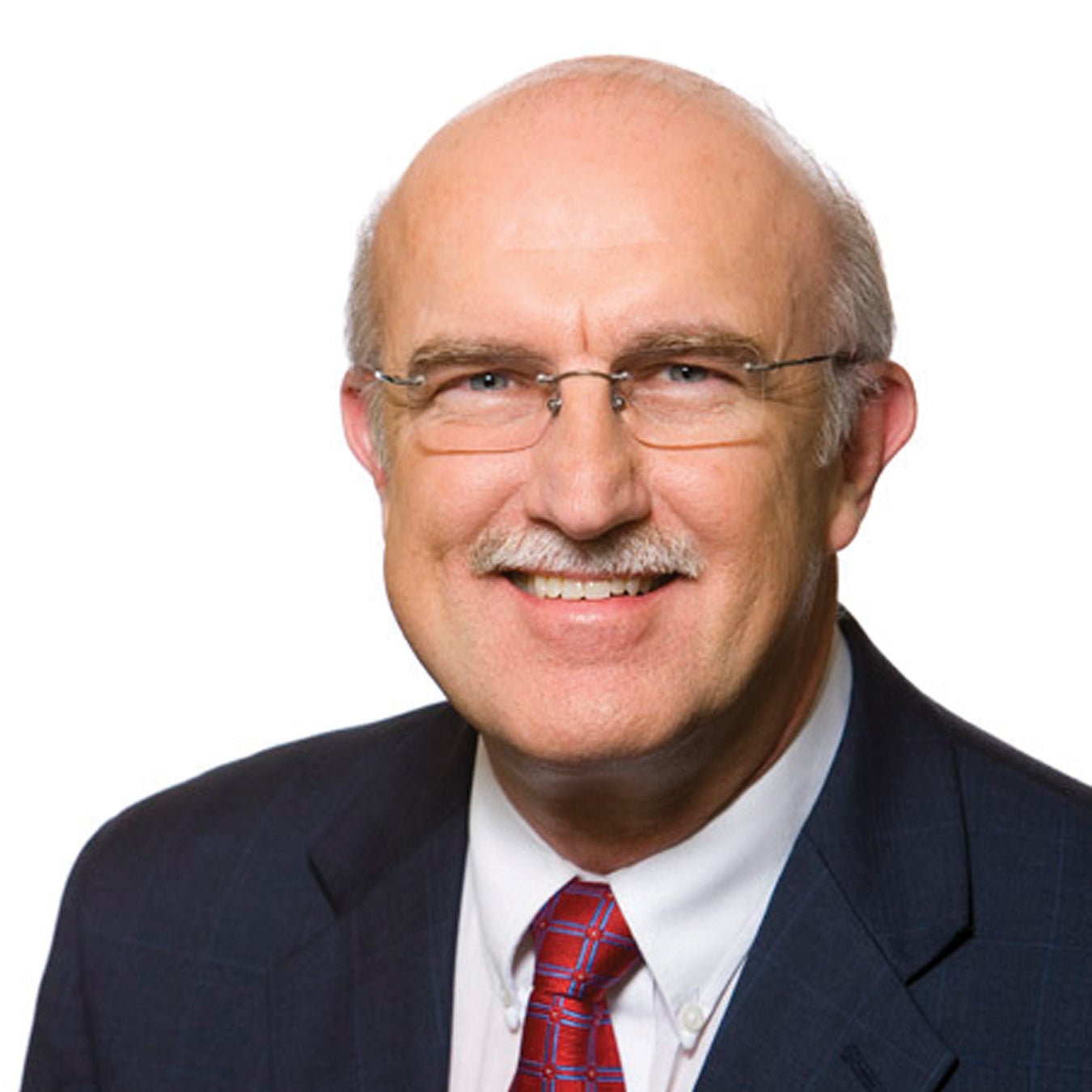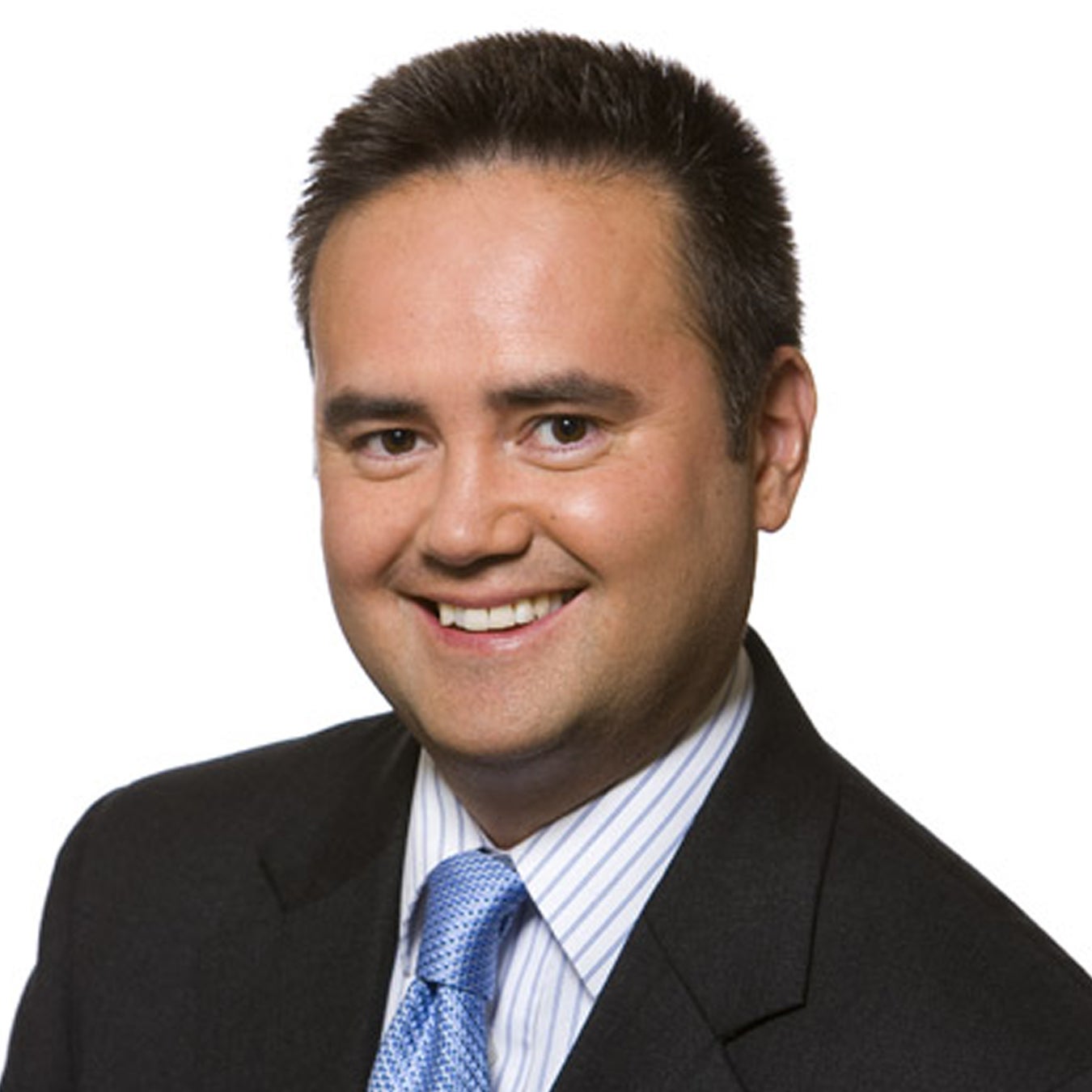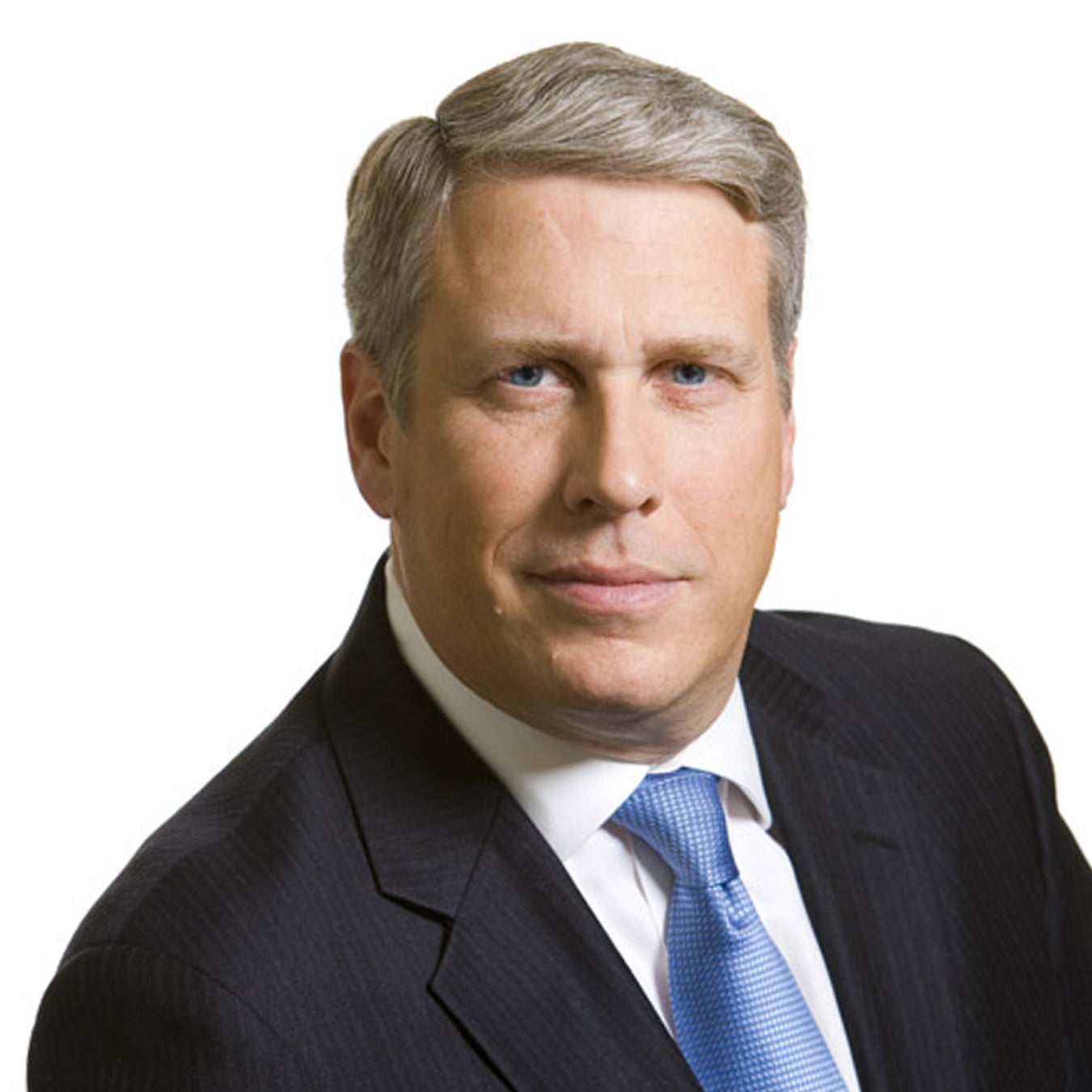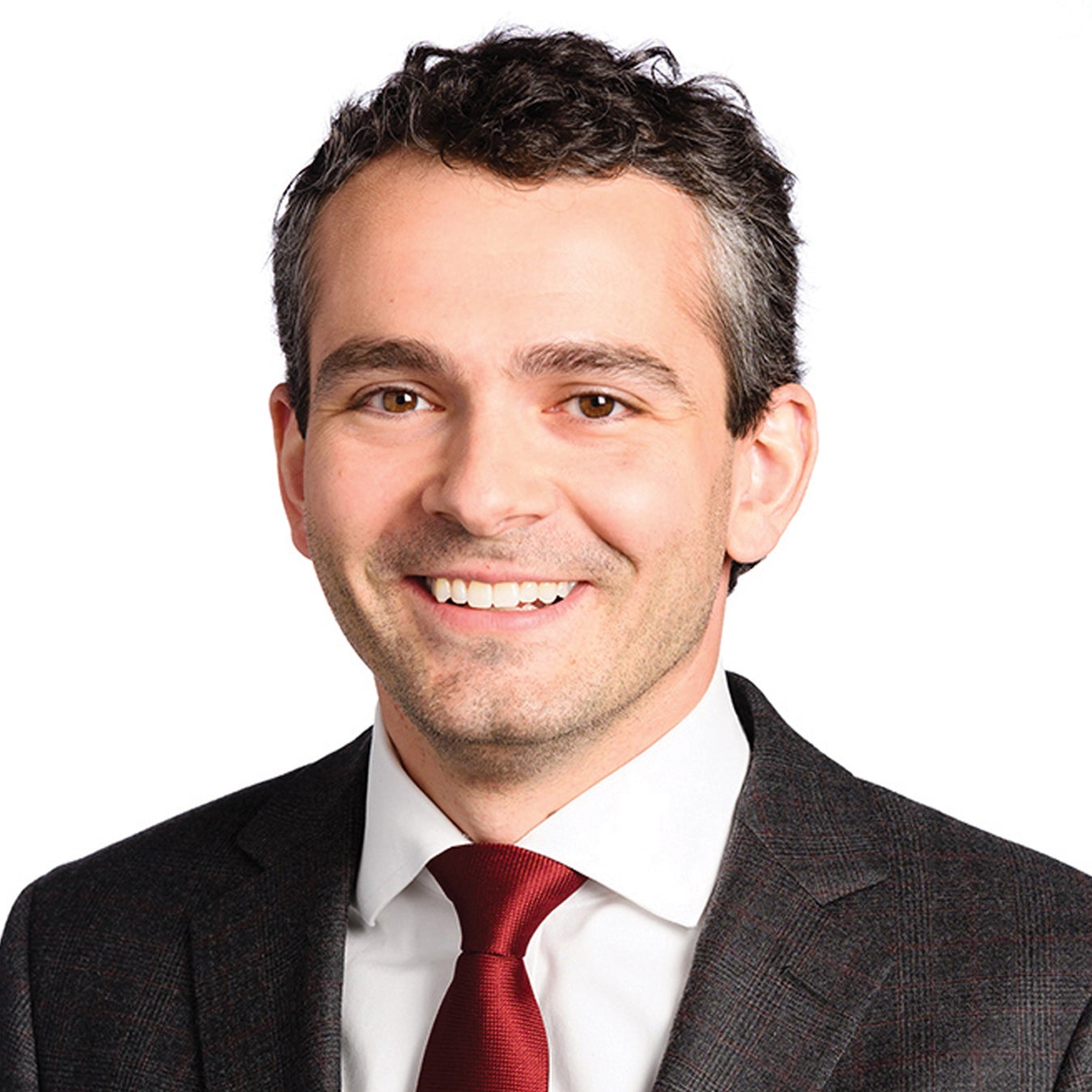*as of December 31, 2018
Heritage Leadership
Planning for Maximum Impact
In 2018, shortly after becoming president, Kay Coles James and Heritage’s senior management team began building our strategic goals for the next three years. Heritage must be equipped with the tools and resources that align our plans with our mission, vision, and budget. Our strategic goals are empowering our team and encouraging them to innovate as never before.
We are committed to keeping The Heritage Foundation the best think tank in the world. Our strategic goals will make Heritage more effective by expanding our impact, by making our research more innovative and relevant, by increasing efficiencies, and by ensuring the financial health of the institution—all for the purpose of achieving conservative victories for America.

Heritage gathers for an all-staff “family portrait” in the Allison Auditorium foyer.
Heritage’s Three-Year Strategic Goals
policy innovation that builds a broader consensus for conservative solutions to the most pressing questions of the day.
Heritage’s reach to and influence on Congress and the Executive Branch.
Heritage’s policy influence into new audiences.
Heritage’s financial future by increasing membership and revenue.
as a best-in-class institution by developing best practices in personnel, budget, operations, and management.
policy innovation that builds a broader consensus for conservative solutions to the most pressing questions of the day.
Heritage’s reach to and influence on Congress and the Executive Branch.
Heritage’s policy influence into new audiences.
Heritage’s financial future by increasing membership and revenue.
as a best-in-class institution by developing best practices in personnel, budget, operations, and management.
Senior Management
Heritage’s “Dream Team”: Our Senior Managers
As a permanent fixture in Washington, The Heritage Foundation is built to be effective in any situation. Today’s environment presents a cultural, political, governmental, and technological context unlike any we have ever experienced. The turbulent public square and divided government will not hamper Heritage’s success.
In 2018, Heritage strengthened its senior management team with three outstanding additions to an already best-in-class leadership group. In September, Andrew McIndoe was promoted to vice president of development and Thomas Binion was elevated as vice president of a new government relations department. Chris Byrnes joined the leadership team as general counsel.
Named Fellows
People are policy.
Heritage is home to some of America’s most thoughtful and insightful policy analysts. And we’ve been blessed with donors who are committed to making sure that we can continue to attract and retain top-flight scholars. Here are the fellowships*—and the analysts they support—that played such a crucial role in our 2018 successes.
Distinguished Fellows
Heritage reserves the title “Distinguished Fellow” for individuals who, in addition to their demonstrated commitment to rigorous research and conservative principles, have compiled a record of outstanding achievement outside the think tank world. In 2018, we honored five scholars with that distinction.
Fellow
On Nov. 16, Kay Coles James welcomed Rick A. Dearborn back to Heritage as a distinguished visiting fellow.
The former deputy chief of staff to President Trump is managing a new Heritage initiative: the Federalism Project. The aim is to reestablish the authority of the 10th Amendment, which states: “The powers not delegated to the United States by the Constitution, nor prohibited by it to the States, are reserved to the States respectively, or to the people.”
Dearborn’s research will promote a return to President Reagan’s 1987 Executive Order 12612, which encapsulated federalism as being “rooted in the knowledge that our political liberties are best assured by limiting the size and scope of the national government.” In addition to developing a blueprint for devolving power back to the states and the people, Dearborn will provide counsel on dealing with the Executive Branch.
Dearborn certainly knows his way around Washington. Over the last 30 years, he has served two U.S. presidents, six U.S. senators and a major trade association on Capitol Hill. And he’s no stranger to Heritage. From 1993-1996, he was our director of congressional relations.
Distinguished Fellow
Becky Norton Dunlop is a proud alumna of the Reagan administration. On June 15, she marked one of the Gipper’s greatest policy achievements by hosting a two-hour seminar on “Reagan’s ‘Peace through Strength’ Cold War Strategy: Integrating Defense, Nuclear Deterrence, Modernization, and Arms Control.” It was this policy, heavily influenced by Heritage Foundation defense experts, that won the Cold War.
Dunlop relinquished two of her many leadership positions in 2018 to concentrate on providing one-on-one mentorship to leaders across the conservative movement. She also stepped up her already hectic speaking schedule.
Six of her college lectures were delivered at law schools, where Dunlop spoke on topics ranging from criminal justice reform to the American Conservation Ethic—eight principles to guide environmental policy that she developed while serving as Virginia’s secretary of natural resources. She also traveled abroad, advancing the principles advocated in Heritage’s Index of Economic Freedom in meetings with international partners on three continents.
in Conservative Thought
A “compulsive historian,” Dr. Lee Edwards continued to document the conservative movement’s past achievements and present challenges.
On March 14, he delivered our spring Russell Kirk Lecture titled: “Our Cultural Crisis: A Kirkian Response.” As a curative for America’s cultural decline and fall, he recommended the rejection of both radical egalitarianism and radical individualism and the pursuit of an ordered liberty based upon the First Principles of the Founding.
In June, he moderated a lively discussion of “Conservatism in the Age of Trump,” convened especially for a group of editorial writers from across the country. Panel members were Matthew Spalding, Ph.D., of Hillsdale College, Michael Franc, Ph.D., of The Hoover Institution, and syndicated columnist Mona Charen.
Edwards later pursued some of the issues raised in that discussion in “Toward a New Fusionism,” a thoughtful essay published in the winter issue of National Affairs.
He lectured widely, as well—not only on campus at Catholic University of America (which honored him this year with an Excellence in Teaching Award) and at Yale, but also off campus at meetings of young conservatives in D.C., Philadelphia, New York City, Dallas, and San Francisco.
A former U.S. attorney general and long-time Reagan confidante, the Hon. Edwin Meese is no stranger to White House ceremonies.
Still, it was a special moment for this champion of constitutional “originalism” when he found himself seated in the front row for the White House event at which President Trump announced his nomination of Brett Kavanaugh to the U.S. Supreme Court. And even more special to see the president himself lead the room in applauding Meese for his heroic efforts to preserve constitutional governance in America.
Meese continues to provide leadership in both domestic policy and law enforcement. He and Heritage Vice President Jennifer Marshall co-host regular meetings of the Religious Liberty Forum, a group of leaders from civil society and government dedicated to preserving religious liberty.
He also hosted, with Vice President John Malcolm, Heritage’s second Police Summit, which attracted 30 chiefs of midsize police forces. The resultant special report, “Policing in America: Midsize Departments as Laboratories of Police Innovation,” presents the most promising strategies identified at the summit for dealing with crime on a limited budget.
Fellow
Acclaimed economist Stephen Moore heads our Project for Economic Growth. Throughout the year, he promoted lower taxes, less regulation, and zero tariffs through almost daily television and radio appearances, as well numerous speeches on the national lecture circuit.
Moore hit those same themes in his weekly column distributed to hundreds of news outlets by the Creators’ Syndicate.
And he advanced his pro-growth agenda in three congressional hearings addressing: “Growth, Opportunity, and Change in the U.S. Labor Market and the American Workforce,” (House Subcommittee on Health, Employment, Labor, and Pensions); “The Impact of Zero Tariffs on U.S. Autoworkers,” (Senate Committee on Health, Education, Labor, and Pensions); and “Examining the Rise of American Earnings and Living Standards” (U.S. Joint Economic Committee).
Moore also found time to appear in documentaries for PBS and the Foreign Policy Association and to publish “Trumponomics: Inside the America First Plan to Revive Our Economy,” his latest book co-written with Dr. Arthur Laffer.
Board of Trustees

The Heritage Foundation Board of Trustees: (From Left) Steve Forbes, New York, N.Y.; Robert Pennington, Darien, Conn.; Larry P. Arnn, Hillsdale, Mich.; Virginia Heckman, Atlanta, Ga.; Brian Tracy, Solana Beach, Calif.; Michael W. Gleba, Vice Chairman, Pittsburgh, Penn.; Edwin J. Feulner, Alexandria, Va.; Nersi Nazari, Atherton, Calif.; Barb Van Andel-Gaby, Chairman, Duluth, Ga.; Kay Coles James, Fairfax Station, Va.; Jerry Hume, San Francisco, Calif.; Mark A. Kolokotrones, La Canada, Calif.; J. William Middendorf II, Little Compton, R.I.; Thomas A. Saunders III, Palm Beach, Fla.; William L. Walton, Washington, Va.; Abby Moffat, Bethesda, Md.; Edwin Meese III, McLean, Va.; Anthony J. Saliba, Chicago, Ill.; (Not pictured) Ryan Haggerty, Fort Worth, Texas; Rebekah A. Mercer, New York, N.Y.
Leadership that Points True North. Always.
Board of Trustees*
Barb Van Andel-Gaby, Chairman
Michael W. Gleba, Vice Chairman
The Hon. Kay Coles James, President
Larry P. Arnn, Ph.D.
Edwin J. Feulner, Ph.D.
Steve Forbes
Ryan Haggerty
Virginia Heckman
Jerry Hume
Mark A. Kolokotrones
The Hon. Edwin Meese III
Rebekah A. Mercer
The Hon. J. William Middendorf II
Abby Spencer Moffat
Nersi Nazari, Ph.D.
Robert Pennington
Anthony J. Saliba
Thomas A. Saunders III, Chairman Emeritus
Brian Tracy
William L. Walton
Honorary Trustees*
David R. Brown, M.D., Chairman Emeritus
The Hon. Frank Shakespeare
Society of Emeritus Trustees*
Phillip N. Truluck, Chairman
Belden H. Bell
Midge Decter
J. Frederic “Fritz” Rench
William E. Simon Jr.
Officers*
The Hon. Kay Coles James, President
The Hon. Kim R. Holmes, Ph.D., Executive Vice President
John P. Backiel, Vice President
Thomas P. Binion, Vice President
Robert B. Bluey, Vice President
Christopher G. Byrnes, General Counsel and Secretary
Wes Dyck, Vice President
Eric Korsvall, Vice President
John G. Malcolm, Vice President
Jennifer A. Marshall, Vice President
Andrew P. McIndoe, Vice President
Jack Spencer, Vice President
James Jay Carafano, Ph.D., Vice President
Bridgett G. Wagner, Vice President
*As of December 31, 2018
As a nonprofit 501(c)(3) organization, we rely on the financial contributions of the general public: individuals, foundations, and corporations. We accept no government funds and perform no contract work. We welcome your support.








